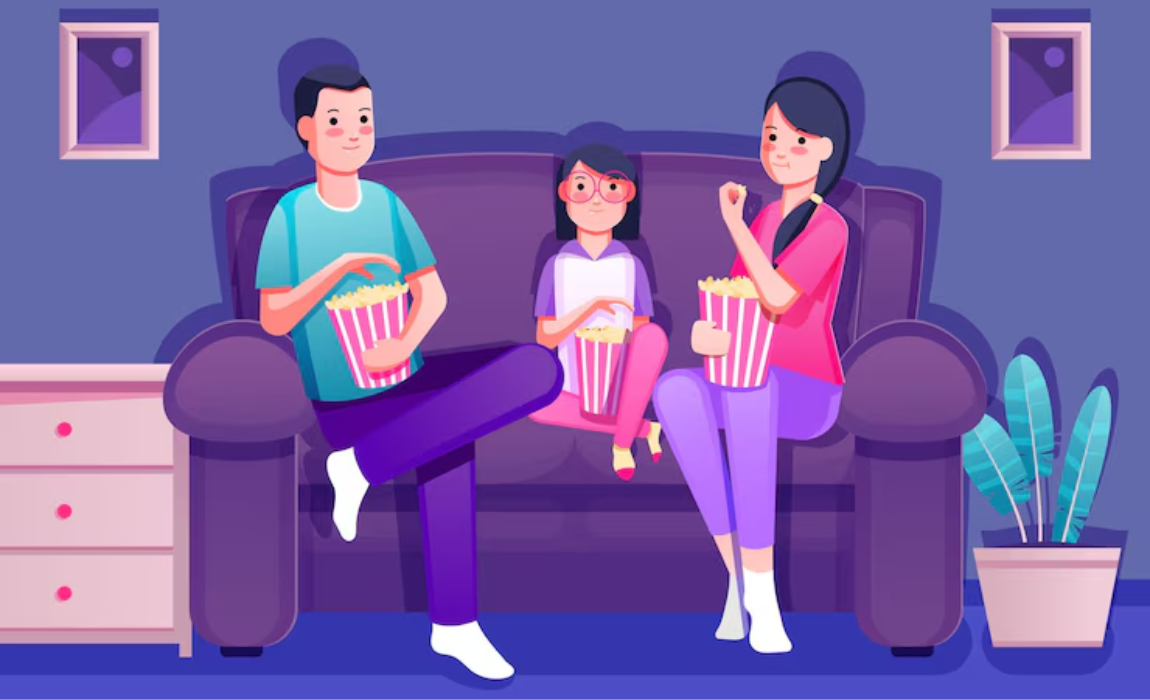
Rethinking Parenting In The Digital Era: A Reflection On Netflix's Adolescence
Parenting has never been easy — but in today’s digital age, it feels like we’re playing a game without knowing the rules. Netflix’s docudrama Adolescence highlights this confusing, messy space where parents and teenagers often talk past each other instead of to each other. And honestly, it’s a wake-up call.
The show doesn’t dramatize or sugarcoat things. It simply tells the truth: growing up today is different. Teenagers are navigating a world where their sense of self is tied to social media likes, where they face pressure not just at school, but every time they unlock their phone. Adolescence captures that silent tug-of-war between who teens are and who they’re trying to be in front of a screen.
But here’s what really struck me — the parents. You can see them trying. They want
to help, they want to connect, but most of the time, they just don’t know how. And who can blame them? The rules of parenting have changed so fast. It’s not just about setting curfews or checking homework anymore. It’s about understanding TikTok trends, knowing the difference between Snapchat and BeReal, and figuring out whether your child is just distracted — or silently drowning.
Let’s be honest: screens have become a part of parenting now. We hand over devices to keep kids busy while we finish chores or meetings. Sometimes, it feels like the only way to keep the peace at home is through a tablet. But then we turn around and worry that our kids are too dependent on technology. That guilt? It’s real, and Adolescence shows it without judgment.
The truth is, there’s no one-size-fits-all manual anymore. We’re all learning as we go.
What this show reminds us is that our kids aren’t the enemy. They’re not mindless or lazy or addicted to their phones for no reason. They’re dealing with a world that’s always “on,” where mistakes are public, and silence from friends can feel like rejection. That’s heavy. And maybe what they need most from us is not control, but compassion.
So what can we do?
We can start by listening more. Not just hearing the words, but really listening — even when it’s uncomfortable. Ask about their day online, just like you would about school. Be curious about their world instead of criticizing it.
We can also make time for real connection. And I don’t mean lectures at the dinner table. Watch their favorite show with them (even if it makes no sense to you), play that video game, learn the silly dance. You don’t have to love it — just show up. That’s what matters.
And maybe we need to let go of the idea that being a “good parent” means having all the answers. Our kids aren’t looking for perfection. They’re looking for someone who’s willing to walk alongside them — not ahead, not behind, but with them.
Netflix’s Adolescence doesn’t tell us what to do. It just holds up a mirror and says, “This is what it looks like right now.” And honestly, that reflection is hard, but necessary.
Parenting in the digital era isn’t about winning battles over screen time. It’s about building trust in a world where everything feels uncertain. It’s about growing, together — even if we’re learning on the fly.
Because in the end, what kids want most hasn’t changed. They still want to feel seen, heard, and loved. And that — even in this noisy, pixel-filled world — is something no algorithm can ever replace.
